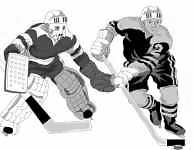Home Search Level 0 Level 1 Level 2 Level 3 Level 4 Level 4Pro Level 5 C/Sing Solo
| Tech terms | Scales | Axioms | Drills | Checksheets | Processes | Prep. lists | C/S terms | C/S tool | Grades | Cramm | Points | KTW | Online |
|
Home Search Level 0 Level 1 Level 2 Level 3 Level 4 Level 4Pro Level 5 C/Sing Solo |
|
|
| Tech terms | Scales | Axioms | Drills | Checksheets | Processes | Prep. lists | C/S terms | C/S tool | Grades | Cramm | Points | KTW | Online | |
What is a Missed Withhold?
1. an undisclosed contra-survival act which has been restimulated by another but not disclosed. 2. A missed withhold is a 'should have known'. The pc feels you should have found out about something and you didn't. 3. The missed withhold is something people nearly found out. It's another person's action. It's nothing the pc did or is doing. It is another person's action and the pc's wonder about it. Abbreviation: M/W/H.Missed Withhold,
|
She wonders |
A withhold and a missed withhold are two different things. There has to exist a withhold for it to get missed, of course. But the manifestations and the exact thing you need to address are different for the two phenomena. A withhold is something the pc has done and isn't talking about. We covered that earlier and we covered briefly how to audit it. You of course want to know what the pc did. You want time, place, form and event of the pc's action.
When we talk about a missed withhold it is another person's action. It's a withhold that another person nearly found out about but didn't. You need to find what that person almost found out. That is the withhold. But It is not missed until someone else nearly found out about it. The missed withhold has nothing to do with what the pc did or is doing. The 'missed' part is not the pc's action.
It is the other person's action of missing it and the pc then wondering about it. The wondering and the worrying, the uncertainty and the misemotion stemming from this is, what a missed withhold is all about. Since the restimulation, the misemotions and the dramatizations on the part of the pc can be pretty spectacular and pretty dramatic and destructive this is a very important datum.
So a missed withhold has nothing to do with the pc. It is another person's action and the pc's wondering about whether this person knows or not. When you are talking about the 'missed' phenomena, you are talking about the moment of restimulation. It got restimulated by this other person. You can actually forget about, that it even is a withhold. You are looking for exact moments in the lifetime of this pc when somebody else almost found out and he has never been sure since whether they did or they didn't. We don't care what they almost found out. We only care that they almost found out something. That is the essence of how you address and handle a missed withhold.
You address an other-person-than-the-pc's action; the moment of restimulation of something in the pc's Bank.
The Mystery Sandwich
The pc is stuck in the unknowingness and the uncertainty as
to whether someone else knew. This blows when the pc spots it. So a missed
withhold is an overt and a withhold plus a mystery. The magnitude of the
overt has nothing to do with its evaporation. The degree of mystery is
what holds it in place. If you want to know what is sticking a thetan to
something, look for the mystery sandwich. The mystery sandwich is the thetan's
desire to find out but the character of what he wants to find out about is in
such a confusion so he never will. His desire to know is great but the confusion
and resolution of what he wants to find out about is too complicated. Even
overts themselves wind up in the mystery of whether you should have done it or
not.
This causes withholding of further action. All things here can be boiled down to
right conduct and wondering about it.
So when you ask the pc for missed withholds, be alert to whether the pc is giving you withholds or missed withholds. The
number of withholds a person has on the whole track is undoubtedly staggering.
You don't need to get them all to clear somebody.
 |
 |
|
In any Game you |
Offense and Defense are |
Withholds and Games
The whole anatomy of a game is overts and withholds. You
attack the opponent and defend yourself against him. The overt is a reach and
the withhold is a no reach. You gather things or mass for yourself and try to
prevent or keep down to a minimum the loss of mass or particles. It's like a Bank
account, a household, any company or group or single individual. We are not
necessarily talking about breaking rules here. If the amount
or mass is increasing you are winning. So you gather energies by the mechanism
of O/W which results in solid-mass terminals (like a fat Bank account), making a game possible. You don't
have time enough in auditing to run all the pc's overts, even for one lifetime.
General O/W (a process like' "What have you done?", "What have
you withheld?") does have its uses. It could work for getting the pc into
session and smoothing things out, but it is generally too lengthy except for special
uses, like Grade 2, where it is a Major Action.
So a shortcut of this for rudiment purposes is to ask the
pc for "nearly-found-outs". Those are the moments of restimulation. When you pick up a pc's missed withholds,
you are looking for and picking up another person's action, not the pc's. And it
is best characterized as 'nearly found out'.... You
are running the almost-discovered-track.
Why we are interested in these moments of 'nearly
found out's
You'll never see anybody quite so upset as somebody who
has been just barely missed. Look at a person who was not hit by a car by a
hair, or a bear that is biting at a bullet that flew by and just missed him; or
look at an exam that you failed by one or two points. It's the nearness of the
miss that counts. You can even look for examples in violent acts done in a state of extreme
emotional upset. Somebody nearly found out about an overt or crime and the
sinner got so emotionally upset as to assault the unsuspecting intruder. He
wanted no witnesses. This is
the wild animal reaction that makes Man a cousin to the beasts. But this
phenomenon is also based on the element of a mis-estimation of effort or thought
in it. A thetan's main attention and main mental activity is an estimation of
thought, effort, and look (impressions). He wants to know how much look is a
look. His certainties are all based on proper estimation of thought, effort,
impressions, etc. When an error is made here, it is very upsetting to him. How
much knowledge is knowingness? That is an estimation; you can have a good
opinion about that. How much
emotion does it take to be emotional? Enough to create the desired effect; that
is easy. What
is a proper symbol, etc.? You can estimate everything except how much mystery it
takes to make a mystery, because that is a mystery! You are now into the
no-estimation band, and it is all mysterious. The not-knowingness of it is
confusing and upsetting; but it keeps the thetan working at it, over and over.
A Not-knowingness that is 'probably known' is especially painful, because of the multiple not-know of viewpoints and flows involved. Take a not-knowingness and play with it both ways: They knew, but they didn't or couldn't have known. You know they knew, but you know they didn't know. The four-way flows of a missed withhold are painful to a thetan. This is the stuff of which insanity is made.
Insanity in the effort band of the know to mystery scale is "can't reach/must reach". It's terrible important to get something done, but at the same time impossible; but at the same time, maybe if..., etc., etc. Insanity in the mystery band is a "did/didn't know; must/mustn't know". That is what we are discussing here. That is what a missed withhold is and what it is doing to the pc. It's just pure mystery glue, ... and the thetan will stick right to it.
Just getting the overt and withhold off, when there is an added mystery of a missed withhold, doesn't produce an As-isness of the section of track where the pc is stuck, because the pc is not simply stuck with the overt or the withhold. The pc is stuck with the 'almost found out', so of course nothing As-ises. If you only get the O/Ws off you may end up with a recurring withhold.
Recurring Withhold
A recurring withhold is one which the pc keeps giving
you. The charge keeps coming up because of the restimulation in the 'Nearly
found out'. The actual overt, the pc action, may not be entirely known to the pc
either. Yet it is the 'Nearly found out' that keeps being restimulated by being
missed by people. The withhold the pc keeps coming up with hasn't been
completely uncovered. In a case like this it is typically because the pc does
not know either. It can very well include unrecovered pieces of the withhold the
pc is telling you; or it can be an earlier similar withhold that is at the root
of the withhold he is giving. But what really keeps that withhold alive and
recur in auditing is, that it keeps being missed (restimulated) in life
or in the auditing situation. This is a multiple mystery situation. The remedy
is to make absolutely sure to get the full overt (including earlier similars)
and get a full list of "Who missed it?" and "What did he/she do
that made you wonder?" and get that question completely answered.
You could get remarkable results from running, "Get the idea of people nearly finding out about you." You could run this on four flows. This process would free up track that the pc had never seen before, but which had been right in front of his nose.
 |
This armed traffic cop |
So when pulling missed withholds, it is not what the pc did which is of interest. When pulling missed withholds, "get the name, rank and serial number of the person who missed it". We couldn't care less of what was missed. We don't want to focus on the pc's action. We want the pc's guesses about the other guy; pc's desperate attempts to figure out what is going through this guy's mind. Get who the pc thinks might know, etc., etc.
If you have gotten off his overts on something, as on a repetitive process, and he still feels a bit weird about it, you may think that he must have more overts, so you keep after him for more. This will send him around the bend, since you are essentially cleaning a clean. What you really have to find is:
1. Who nearly discovered the overt.
2. When.
4. What action on the other person's part restimulated it.
3. Any other times this happened.
This type of questioning has to be exhausted completely.
This is what is needed, to complete the cycle that was started when the overt was almost discovered. Just as far as time is concerned, it is a mystery sandwich. The thetan is wondering whether a certain consequence or punishment is going to happen or not. "What is going to happen to me? If so, when? Or isn't it going to happen?"
 |
In the TV series |
Colombo and M/W/H
If you have ever seen the TV series 'Colombo' (Peter Falk) with the Los
Angeles detective, you will know what we are talking about. Colombo had refined
'the art of missing withholds' in his suspects. By turning up all the time in a
sneaky manner and ask the suspect nosy questions, he would drive his suspects
completely nuts and they would finally confess just to escape the torture and
insanity of the
not-know and mystery confusion. Colombo used this method, when he didn't really
have enough evidence. He would never be able to convict the suspect without his
confession. But he was having the suspect create this mocked-up track of
punishment that never actually was going to appear without a confession. But
these pictures of what Colombo might know and the consequences of that, would
push his suspects over the brink. They would usually have some kind of nervous
break-down before confessing.
So in addressing missed withholds, you first ask, "What have we failed to find out about you?" That to establish the withhold and what you are talking about. But the important thing to ask is, "What have we nearly found out about you and when did we nearly find it out?" The second question gets the missed withhold. The worst type of missed withhold is where the pc is asking himself, "Which one of my crimes did he (maybe) discover?" Here is an extra confusion of many scenarios added that is devastating to the pc's peace of mind.
If anything like this should happen in session you just need to know what you are looking at and get all the missed withholds and all the times they were missed and your pc will cool off, feel great and be very cooperative.
The good news in all this is, that the simple action of pulling missed withholds on the pc seems a magic cure for a lot of auditing situations, that before this datum was known seemed beyond repair.
|
Home Search Level 0 Level 1 Level 2 Level 3 Level 4 Level 4Pro Level 5 C/Sing Solo |
|
|
| Tech terms | Scales | Axioms | Drills | Checksheets | Processes | Prep. lists | C/S terms | C/S tool | Grades | Cramm | Points | KTW | Online | |